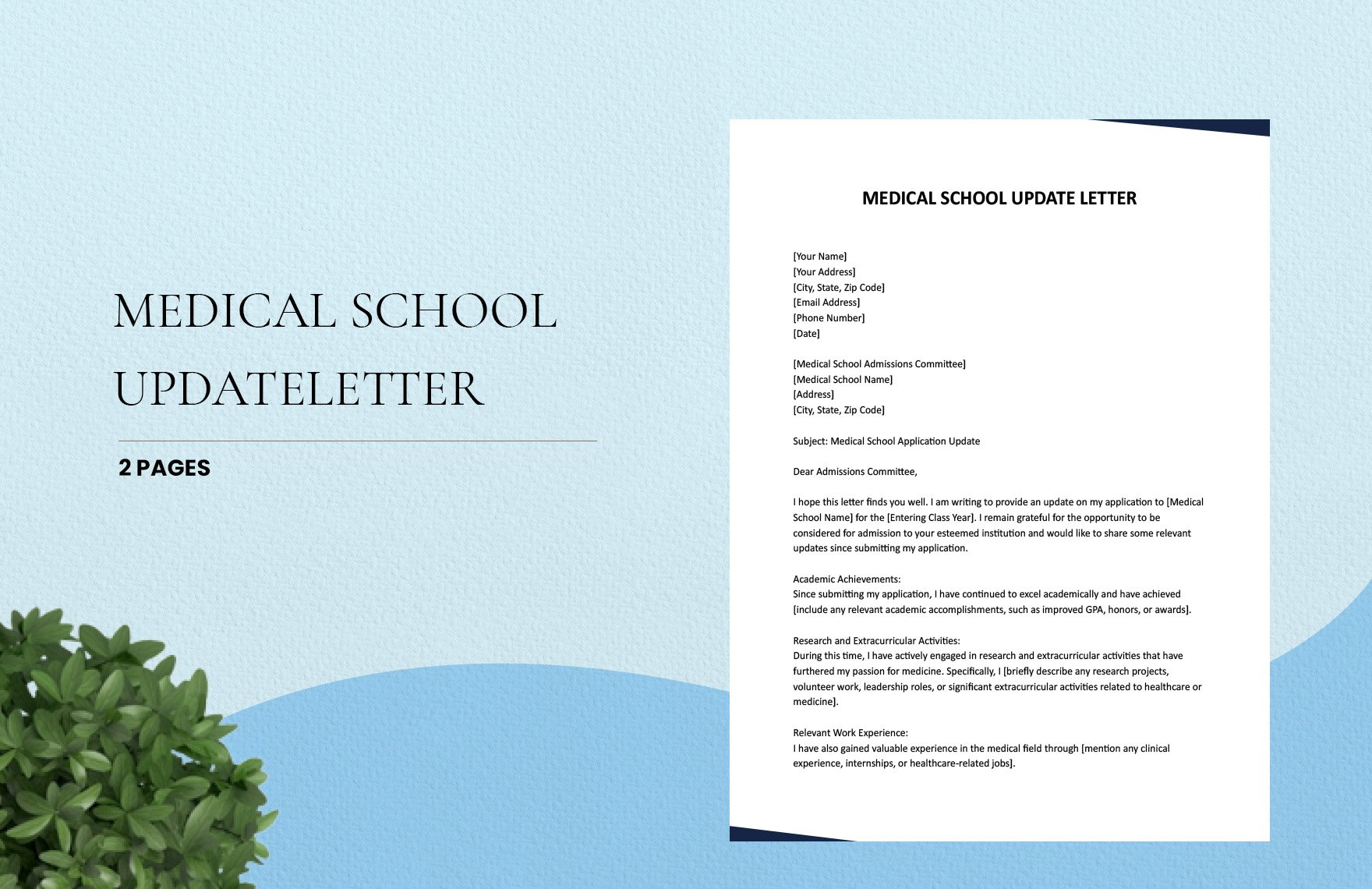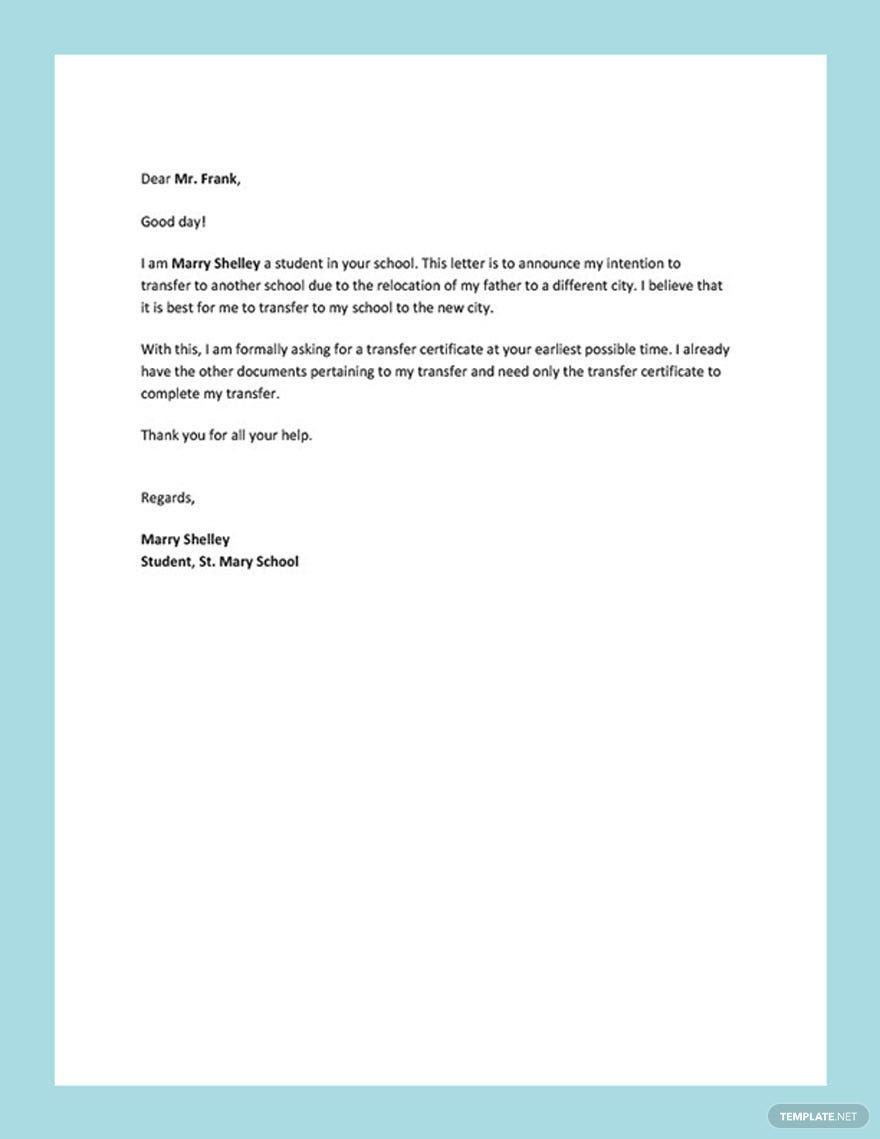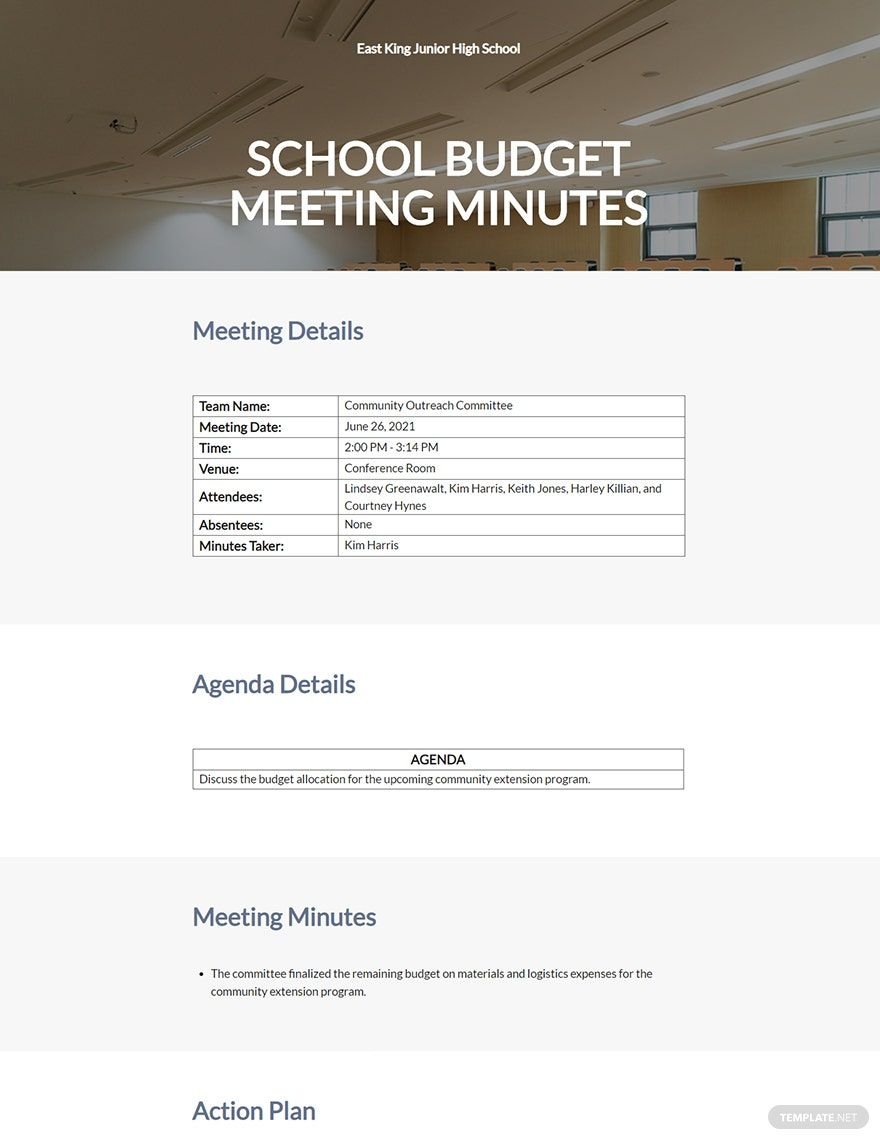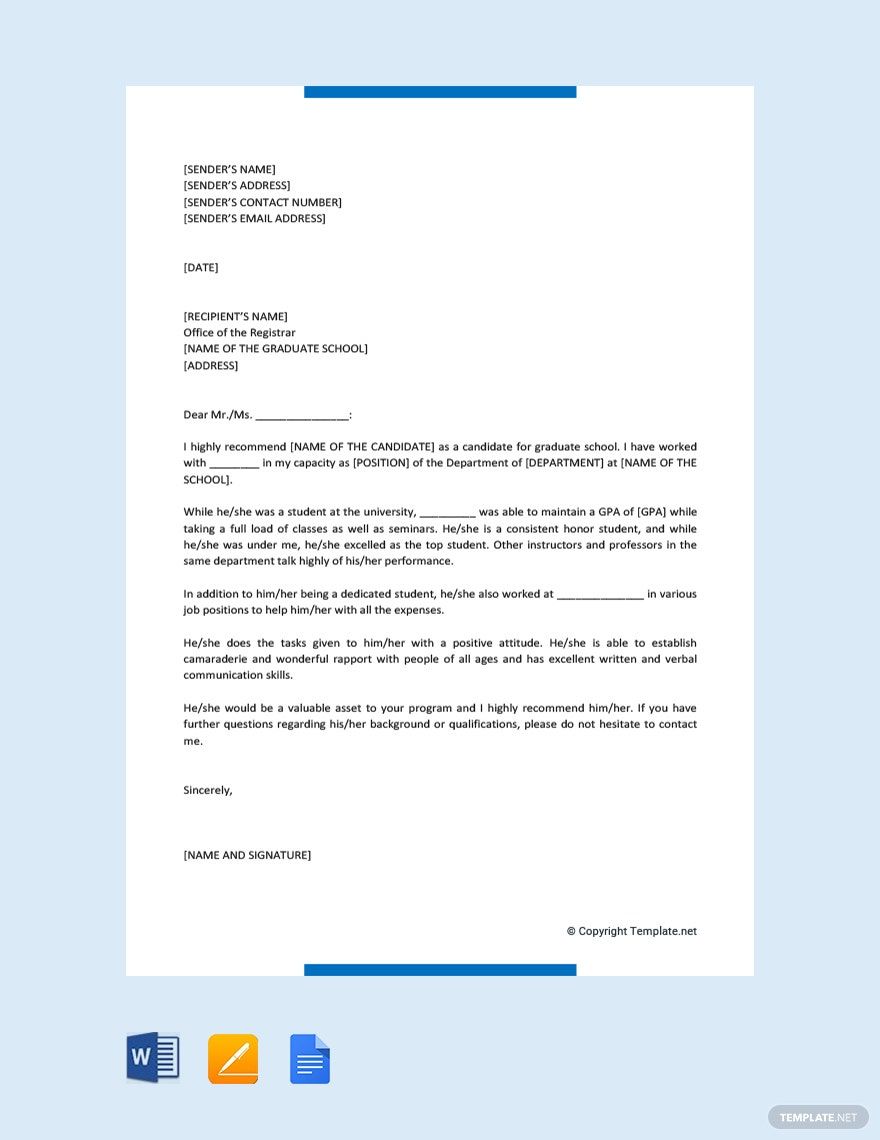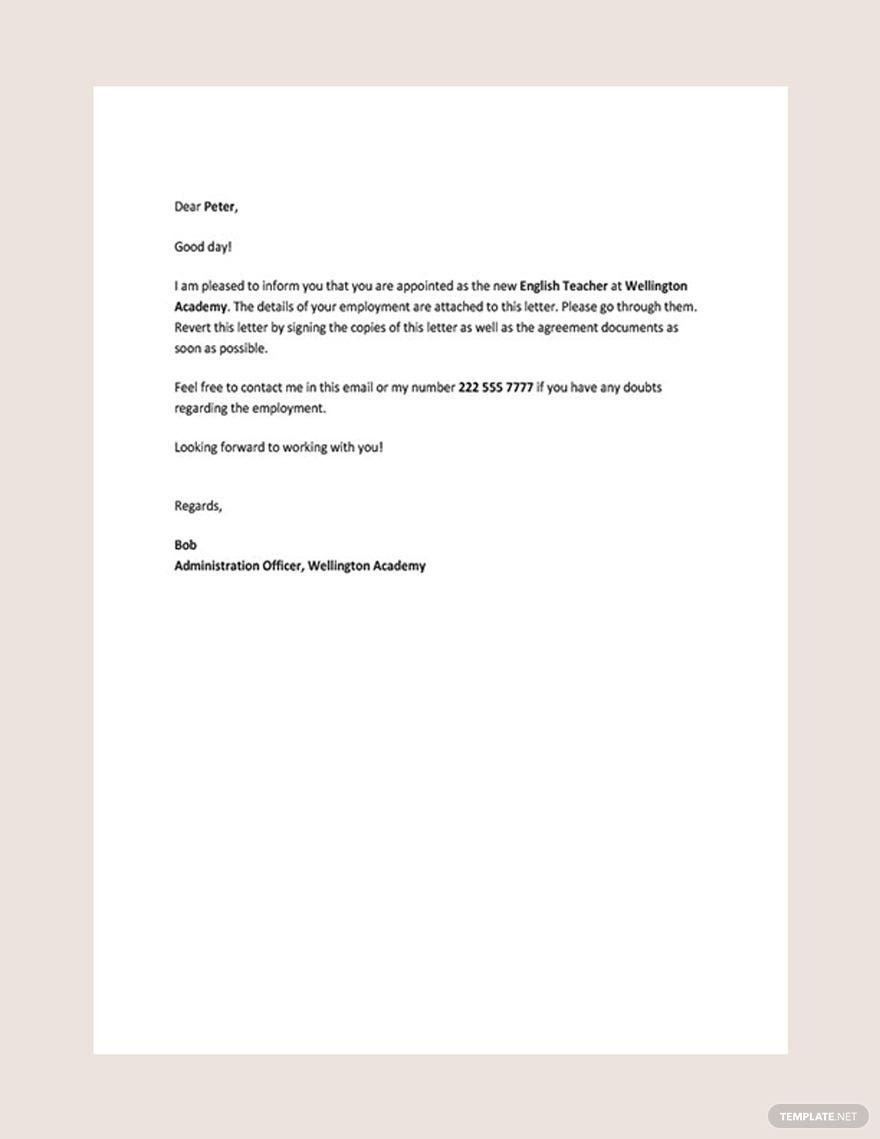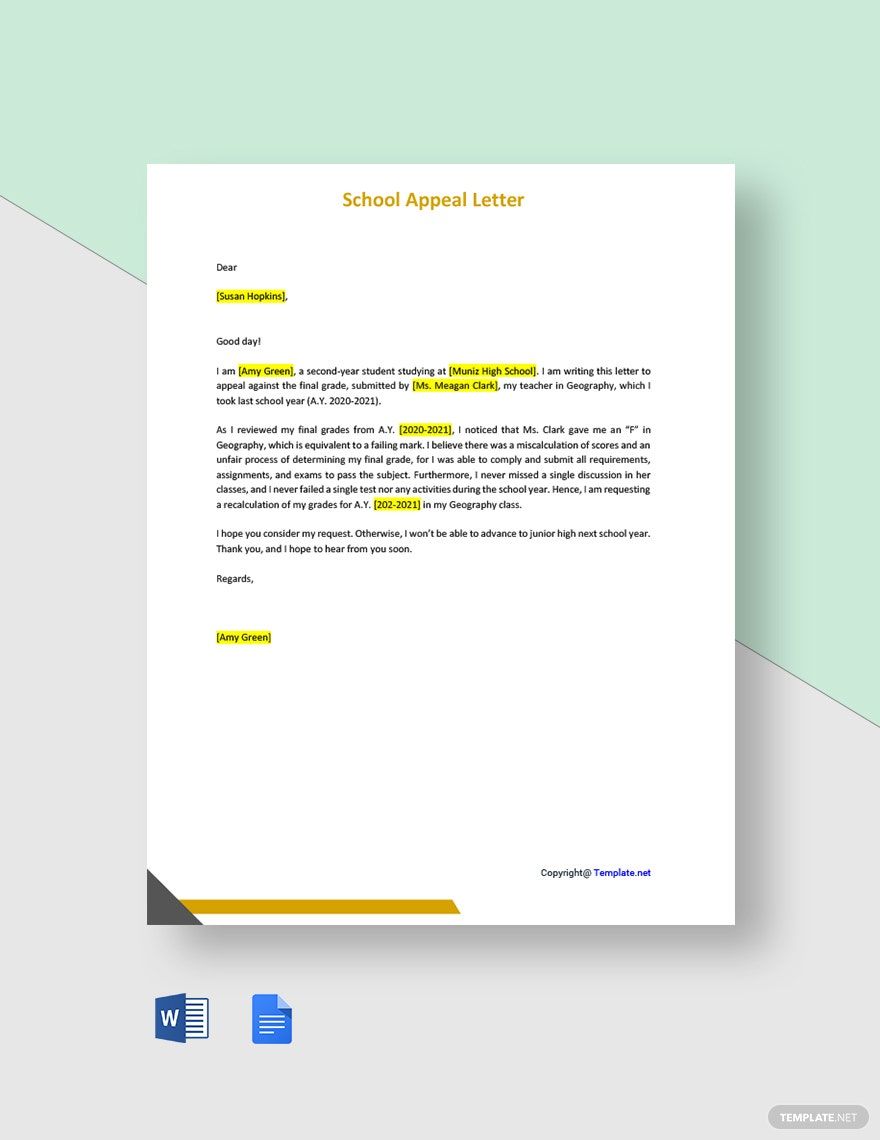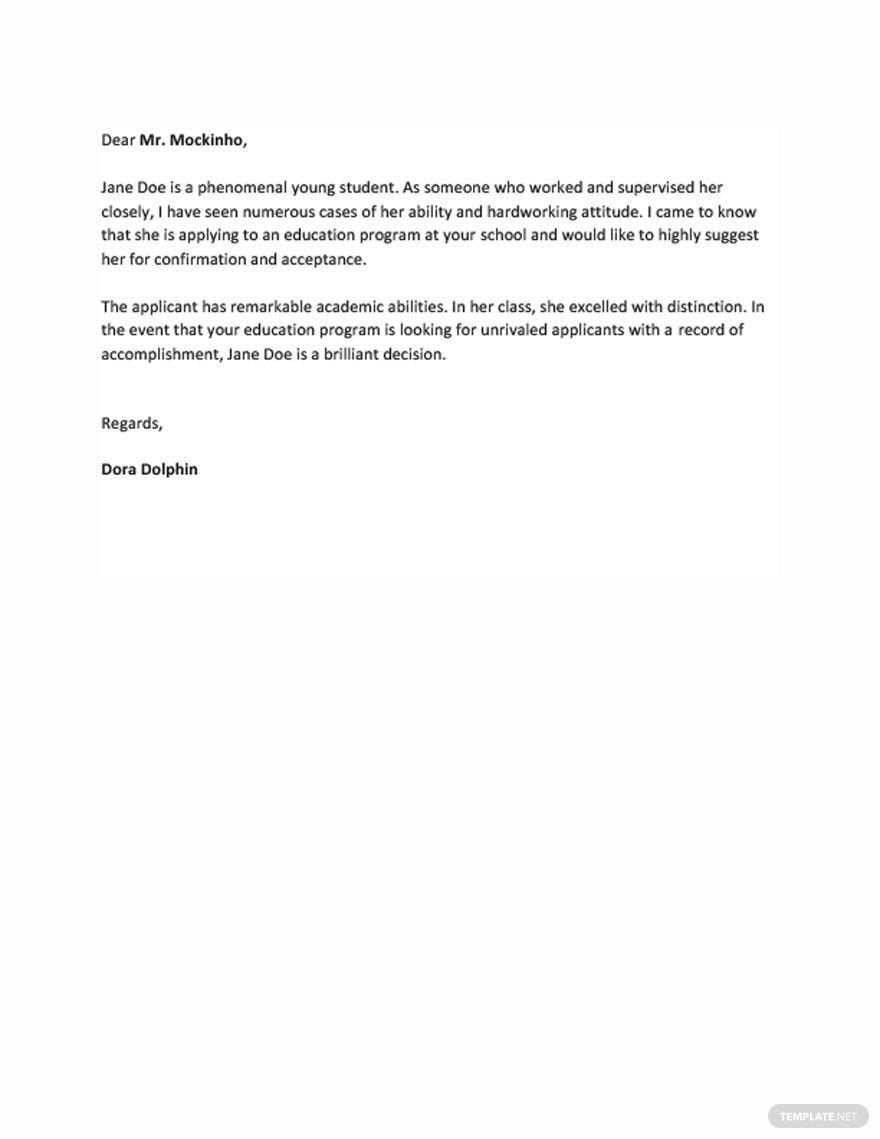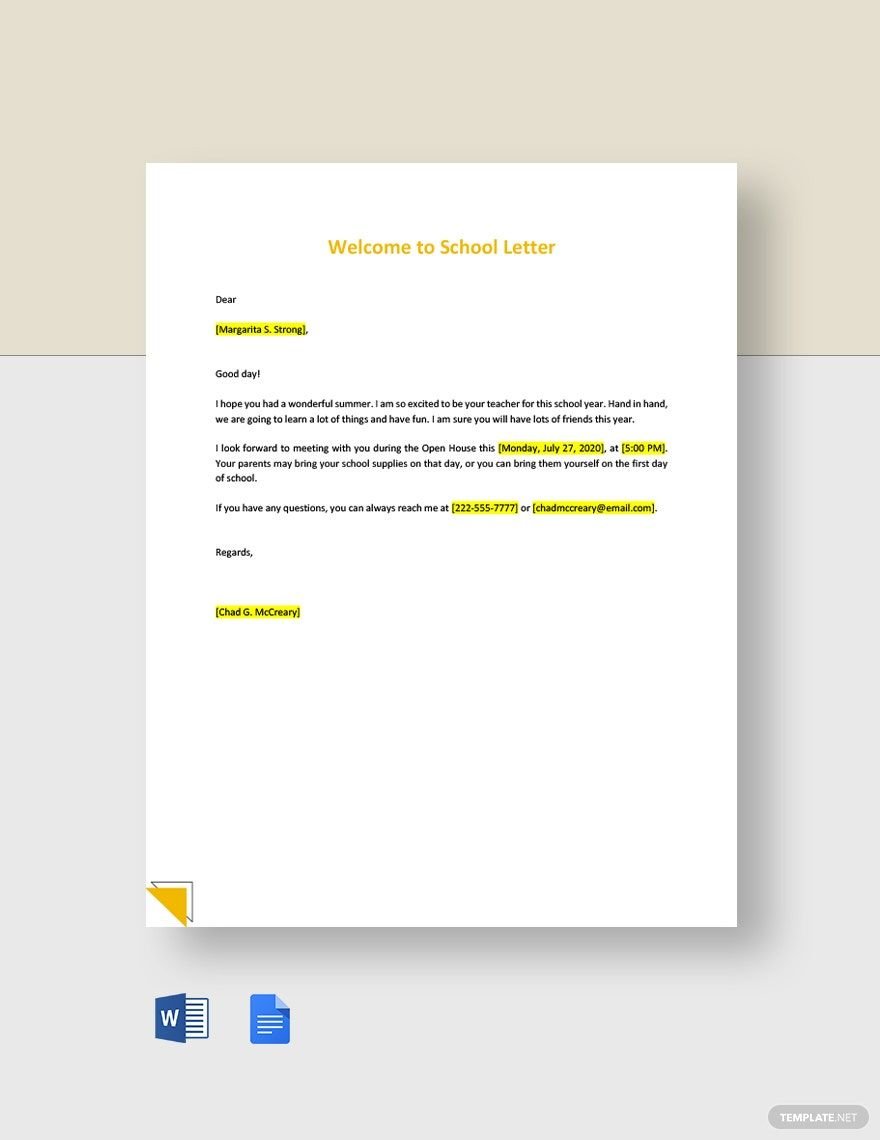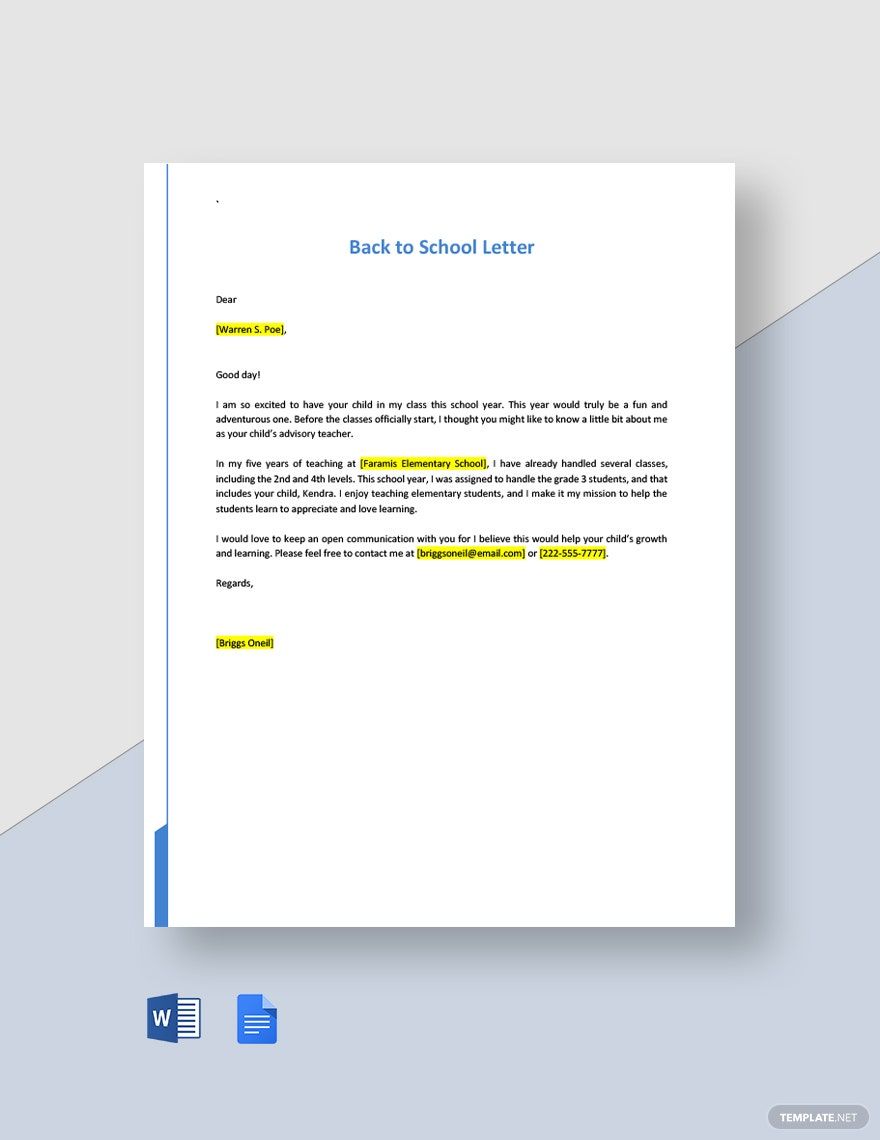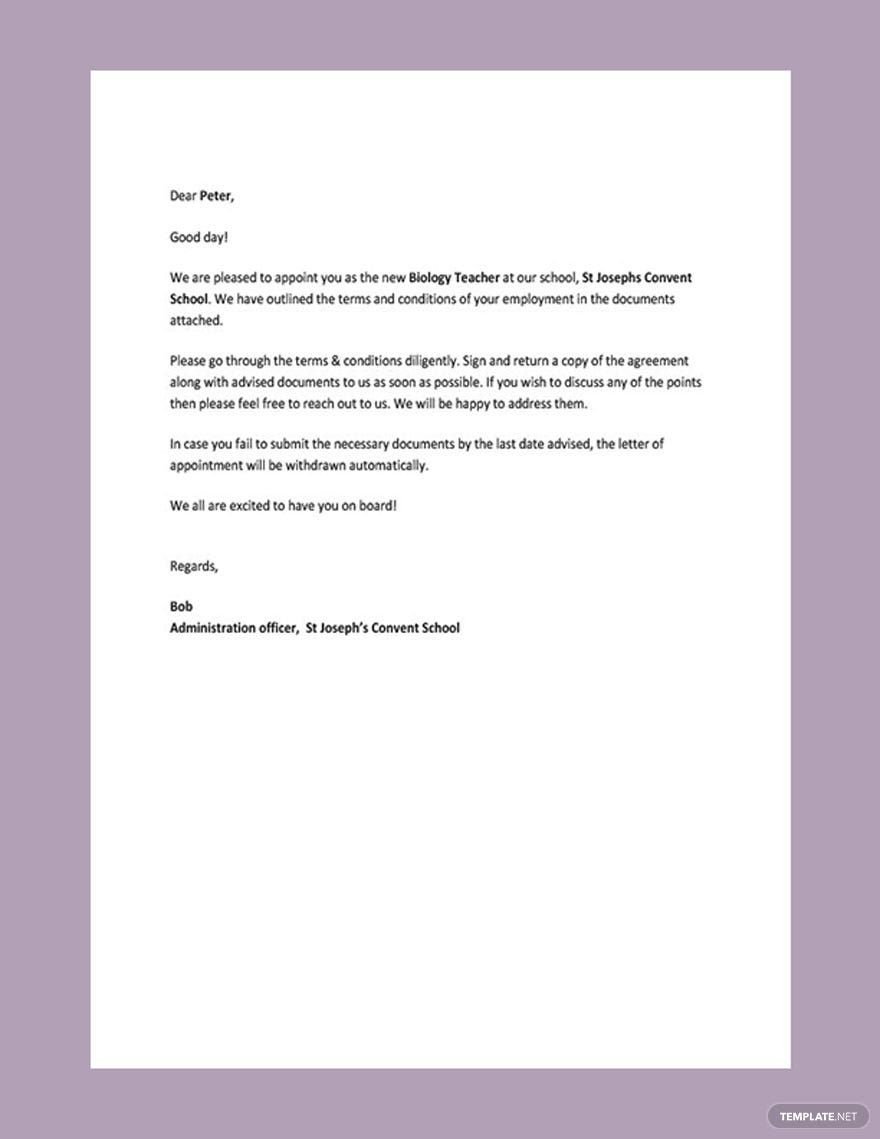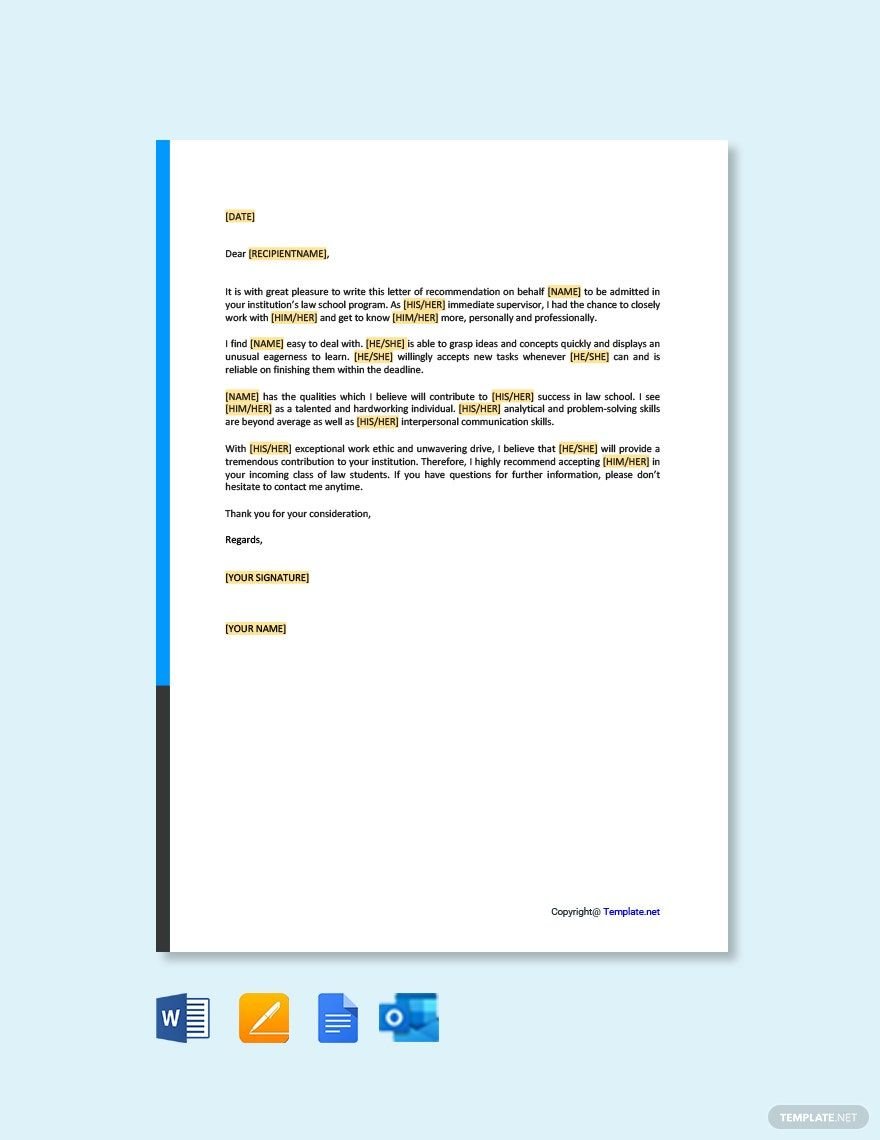Schools really do a lot in educating the children, but at the same time, it's also a business. Any transaction with an educational institution is always executed through letters. With our School Letter Templates in Google Docs, writing a letter to a school is easier and faster! Each template has a well-written original content that's 100% editable and customizable, so there's no need to start from square one. The templates are also printable at home or in your office. Convey your intentions to the school by downloading our templates now!
School Letter Templates in Google Docs
Explore professionally designed, customizable experience letter templates in PDF. Download for free and enjoy printable, professional-quality designs. Start now!

Get Access to All Letter Templates

- Ticket
- Quotation
- Receipt
- Recipe Card
- Proposal
- Contract
- Statement
- Newsletter
- Coupon
- Bill of Sale
- Agreement
- Affidavit
- Memo
- White Paper
- Itinerary
- Postcard
- Plan
- Planner
- Program
- Note
- Cover Page
- ID Card
- Banner
- Form
- Envelope
- CV
- Ebook
- Manual
- Notice
- Magazine
- Lesson Plan
- APA
- Job Description
- Cover Letter
- Sign Out Sheet
- Poster
- Chart
- List
- Time Sheet
- To-Do List
- Log
- Assessment
- Teacher
- Business
- HR
- Marketing
- Sale
- Advertising
- Finance
- Accounting
- Legal
- Administration
- Operation
- Safety
- Bookkeeping
How to Write a School Letter In Google Docs
Just like any other institutions, schools still operate like a business. The money it gets is from the fees parents need to pay for the education of their children. However, some parents have concerns over their children's welfare or some uncontrollable event came up. It's best to address these situations through a letter.
Writing a school letter in Google Docs can serve a lot of purposes. Here are some helpful tips in writing one.
1. Get Details
Before you write the letter, get the proper details of your receiver. Find out the name of the staff, his/her position, address of the school and other details. You can write to the teacher, principal, or any higher official in the school.
2. State Intention
Introduce yourself and convey your intention for writing the letter. Explain the current situation and how it connects to your purpose in the letter. Honesty and clarity are two important things that you should remember when writing this part. May it be an excuse from a sudden absence, transfering a student to another institution, or applying for graduate school, you should write this part clearly and concisely.
3. Give Contact Details
Always include your contact details for the school to contact you. Your phone number and email would do. Include the days you're available for a discussion in your simple letter.
4. End Politely
Wrap up your letter by telling the receiver that you're looking forward to having a discussion with them regarding the matter. Don't forget to proofread your document to check for mistakes.
Frequently Asked Questions
What are the common reasons for writing a school letter?
The common reasons for writing a school letter are:
1. Transferring a student
2. Clarifying a new policy
3. Requesting school records
4. Applying for graduate school
5. Applying for a vacant teaching or a higher position
6. Discussing a student's poor performance or violation of the school's rules
Why is it important to write a letter when dealing with school matters?
Writing a letter is a formal way to communicate with the school staff when it comes to dealing with school matters. With a letter, you state your intention clearly and receive a reply on your concerns. Remember to keep a polite tone when writing a letter.
How long is a school letter?
A school letter is only one page long. Avoid writing long letters to the school. Write your concerns in simple and clear language.
How do schools usually resolve matters involving students?
When it comes to performance, teachers usually give those low-performing students some extra time for tutorials outside of class. If students violate the school rules, the principal decides the type of sanction to impose on them.
Who resolves the matters involving the school?
Schools have committees that handle the matters of the institution. These matters can be about students, policies, or the sustainability of the school. Board meetings take place every now and then to talk about any urgent issue the school currently faces. The school board knows better on solving matters that go beyond students and the teaching force.
